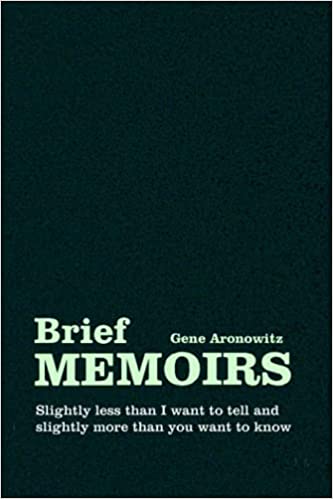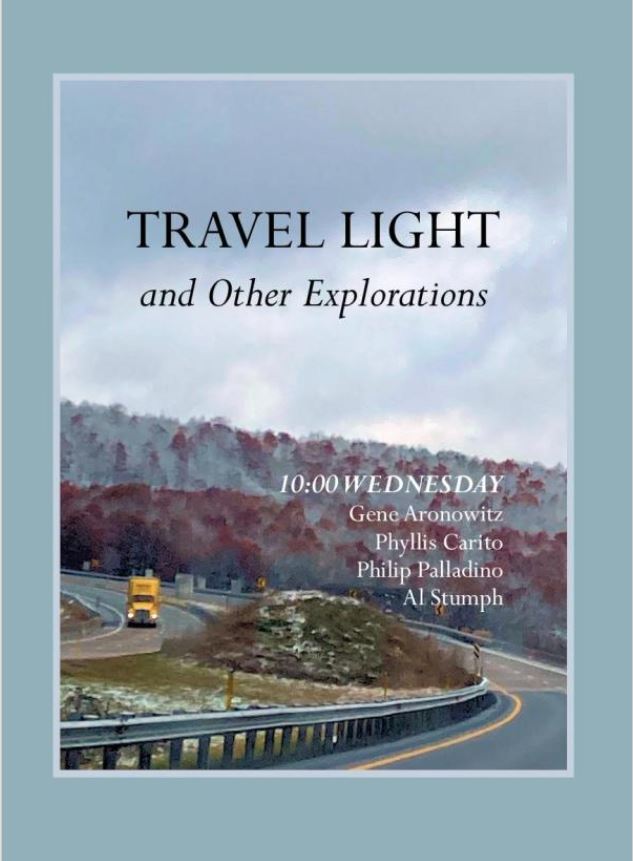Miss McDonnal
By Gene Aronowitz
When I was in the eleventh grade, back in 1954, my mother and I were scheduled to have a brief conference with my guidance counselor, Miss McDonnal. Students and parents inched through the hall in a snake-like procession to her office, past the reeky body odors of the gym and the formaldehyde fumes of the biology lab. I was upset, worried about what she would say but certain it would not be pleasant. I was in the bottom fifth of my class and not even at the top of the bottom fifth. Perhaps, that’s why the smells got to me that afternoon. I was queasy and my head roared. Right behind my mother and me were my mother’s friend and her brainy, dark-haired daughter who got all A’s and knew what she wanted to do with her life. “My daughter will have her pick of the best colleges, just like her brothers,” my mother’s friend said, smiling with her hand on her daughter’s shoulder. My mother nodded but did not look at me.
When we finally got to the head of the line, Miss McDonnal was sitting at her desk, arms extended, fingers intertwined. She looked blankly out of the window, joining me, I imagined, in my desire to be somewhere else. She turned toward me and, probably for the fiftieth time that day said, “What are your plans?”
“I. . . uh . . . want . . . to be a journalist.”
“That’s a bad idea Gene” she exclaimed, punctuated by the taps of the eraser end of her long yellow pencil on top of my grades. “Perhaps something more practical would be better – something more practical, a good trade I think.”
My mother’s lower lip and jaw jutted uncharacteristically, and her hands were clenched. She looked straight ahead, not at me, not at her friend, who stood in the doorway with her daughter, and not at Miss McDonnal.
I shook my aching head and whispered: “You asshole” or, perhaps, those are the words I now put into the mouth of the kid I was back then, a seething underachiever, feeling sad, sick, and stupid. I was destined, it seemed, to be like my father, whose hands were soiled and whose shirt collar was stained after every day of work.
I don’t think anyone in that school thought I would amount to much and neither did I. I managed to get into college, on probation and, as expected, it went badly. The bitch was right, I thought. After two and a half disastrous years, I dropped out of school to join the Marine Corps Reserves. After my six months of active duty, I had an eye operation, clearing up the difficulty I had reading, took reading lessons, and did dramatically better in school. I went on to get a master’s degree and began a good career but not good enough by the standards I thought my friends had achieved. Invitations to high school reunions, which arrived every five years, were as welcome as jury notices. I skipped the first four but, by the 25th reunion, a Ph.D., a high-profile job, and the effects of a very successful diet seemed finally to warrant an appearance.
I was shocked when I arrived, like the day I brought an old 50’s style radio home from a garage sale, expecting to hear the music I heard on the radio back then. Ridiculous, I know, but that’s how I felt at the reunion. I expected everyone to be young and shook my head in disbelief when I saw the couples dancing slowly, the women in muted dresses reaching well below their knees, juxtaposed with my recollection of crinolines ballooning like parachutes in time with the new rock and roll music that was popular when I was in high school. Around the dancefloor were about 20 large round tables, each one commandeered by some reconstituted clique. I didn’t know where to sit and, recalling similar anxious moments in the high school cafeteria, all my old jealousies and animosities erupted like sprouts.
And then I saw her.
Instinctively, I stepped toward Miss McDonnal, strutted across the dance floor to where she stood, exhaled deeply, extended my hand, and said, a bit scornfully, “I’m Gene Aronowitz.” She took my hand, but her head tilted slightly and her eyes narrowed. Then, she glanced at the high school yearbook picture on my name tag, raised her head slightly, either grinned or smirked – I’m not sure - increased the firmness of her handshake, and said, “Yes Gene, how are you?”
Her hands were swollen, her thinning hair, gray. There were vertical crevices down her face and above her lips. I had imagined what I could say to her hundreds of times, preparing to produce the perfect punitive impression. But the words cleaved to the inside of my mouth like peanut butter. I hesitated a moment more, nodded, and said “I’m fine……… I’m fine.” That was it.
I asked how she was but barely heard her response. I was upset, angry for all those torn-up high school reunion invitations, for all that self-doubt, for all those years feeling vindictive and obsessed with anger that suddenly seemed pointless.
In the five years between that reunion and the next, I had my 15 minutes of notoriety. I was the Commissioner of Community Mental Health in Westchester County, New York, and was called on frequently by the local and national media to explain why we were having an epidemic of teenage suicides and what I was going to do about it.
I regretted not saying something to Miss McDonnal about my achievements at the 25th reunion and, hoping she would be back for the 30th, I practiced subtly letting her know how wrong she had been, but not enough to make her feel bad. I knew I would still be wearing my least likely to succeed badge below my name tag and needed to set the record straight.
Almost immediately after arriving at the reunion, Miss McDonnal, who must have seen me on television, came up to me and said: “Gene, I knew that all you needed was a little push.”
Miss McDonnal took credit for everything.


